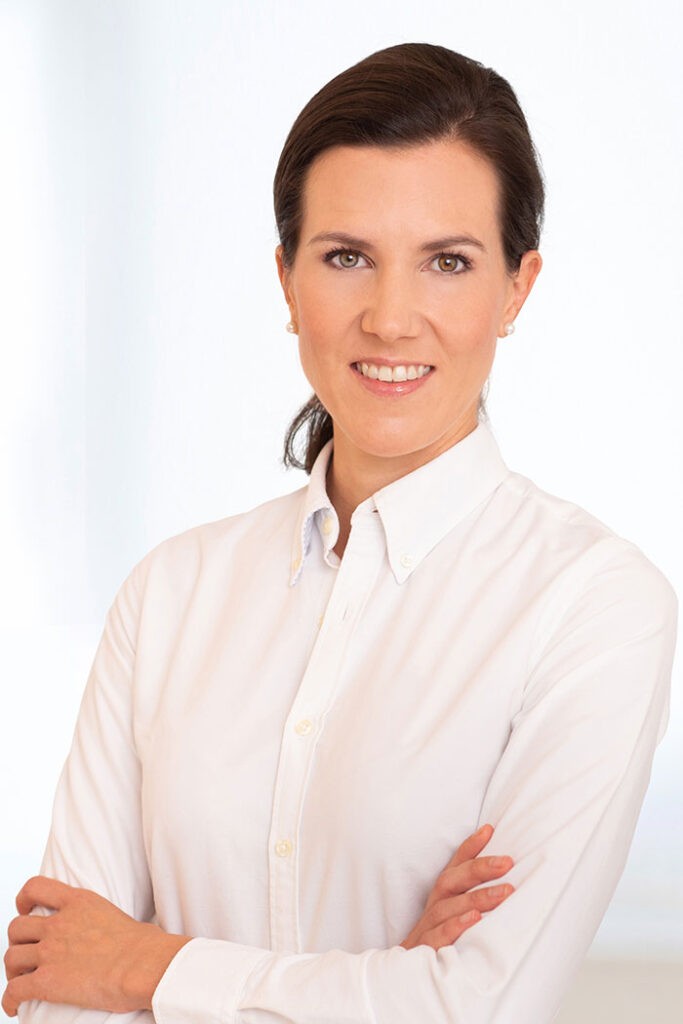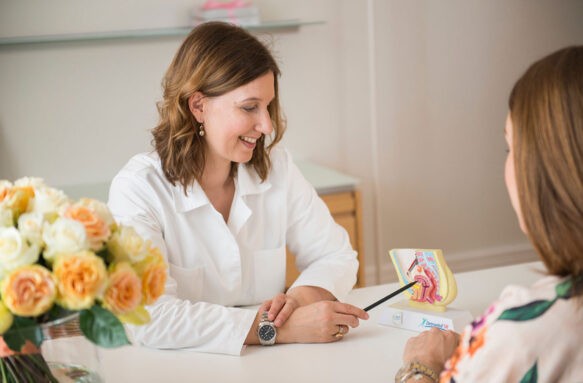Pelvic floor
When your pelvic floor shows signs of weakness and your bladder exerts pressure.
Pelvic floor and bladder complaints are common, have various causes and can occur at any age. They are a source of discomfort, but usually respond well to treatment.
Very few sufferers actually seek medical help, however, despite the considerable negative impact on quality of life. The results of a survey reveal that incontinence is the number two taboo subject in Switzerland.
Don’t be shy – ask us for advice if you experience any of the following:
- accidentally leaking urine, passing wind or losing control of your bowels
- irritable bladder
- finding it difficult to empty your bowels (e.g. constipation)
- dropping down (prolapse) of the uterus, bladder and/or colon
- recurrent bladder infections
- chronic pain in the pelvic floor and lower abdomen
- painful sex (dyspareunia) or vaginismus
- pelvic floor complaints before and after childbirth
What kind of examination can I expect?
After talking to you in detail, we will carry out several examinations:
- clinical evaluation of the pelvic floor by means of urogynaecological examination
- ultrasound examination of pelvic floor, bladder and urethra (perineal ultrasonography)
- measurement of bladder pressure (urodynamics): a urodynamic examination is carried out to ascertain how well the bladder performs its storage function, whether the bladder muscles are working correctly and whether the pelvic floor muscles ensure proper closure of the urethra. The examination involves inserting a special thin catheter into the bladder to measure its function and the closure of the bladder neck. The catheter can also be used to fill the bladder with liquid. Our female urotherapist is used to carrying out this painless examination with the necessary sensitivity and respect.
We will then discuss the best means of treatment with you: conservative if possible, or with physiotherapy, or possibly surgery if required. Our goal is to ensure that your pelvic floor or bladder problems are a passing discomfort only, not a permanent day-to-day struggle.
We are an interdisciplinary team
Clarification and therapy always take place in an interdisciplinary team. If necessary, we consult specialists from our comprehensive network in the fields of urology, gastroenterology, surgery and radiology, with whom we cooperate closely.

Dr. med. Petra Elias







